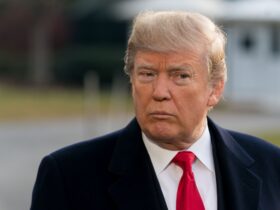By Arul Louis, President Joe Biden is looking forward to his bilateral meeting with Prime Minister Narendra Modi on Friday and they will discuss Afghanistan and priority areas that India is “front and centre of”, according to a senior administration official.
The two leaders are scheduled to meet in the White House at 11 a.m. (8.30 p.m. in India) for the first time after Biden became the President.
Later, they will participate in the Quad summit with Prime Ministers Yoshihide Suga of Japan and Scott Morrison of Australia at 2 p.m. (11.30 p.m. in India).
Briefing reporters about the two meetings, the official said: “President Biden has spoken with Prime Minister Modi on the phone a number of times and has been in virtual summits, but this is their first in-person meeting and will cover a number of priority issues that India is really front and centre of, including pandemic response, their response to climate change.”
They “will talk about technology issues, economic cooperation and trade, as well as Afghanistan and new areas of cooperation that both governments have been discussing”, the official added.
Asked about China’s aggression against India, the official said: “We have seen actions by China that has ramped up tensions with neighbours. It’s not unique to India; we’ve seen it in other circumstances as well and — with Australia, with the South China Sea. And we’ve seen an increase in wolf warrior diplomacy in Europe.”
“I can assure you that Indian friends are very clear-eyed about both their desire to make sure that they are working closely with — in communication with China to try to avert these sorts of difficulties, but also remaining resolute as well.”
On the summit, the official said that Biden has “indicated that he wanted to take this institution — that’s an informal gathering of leading democracies in the Indo-Pacific — and basically lift it both to the leader level and to ensure that we are working together to build better lines of communication and strengthening cooperation and habits of cooperation amongst us”.
“The leaders are hopeful for an opportunity in an intimate setting to sit down and talk about issues of mutual interest and concern” as they discuss “critical issues that are confronting the Indo-Pacific — issues associated with climate change, with matters relating to Covid”, advancing infrastructure and cooperating on space and cyber-related issues.
The official said that after the Quad summit with Biden, “the Quad members will meet with Vice President (Kamala) Harris for a detailed discussion on basically the capacities associated with resilience in each of our countries and compare notes on what we think is important as democracies go forward”.
About Biden’s approach to the Indo-Pacific and the Quad, the official said that it “indicates that the Biden administration understands that the challenges of the 21st century will largely play out in the Indo-Pacific, and we are doubling down on our efforts”.
But reflecting the US ambiguity about the nature of the Quad and the ambivalence about institutionalising it, the official said: “I do want to underscore that the Quad is an unofficial gathering, although we have a number of working groups and we are deepening cooperation on a very daily basis.”
“It is also the case that it is not a regional security organisation. We are going to address particular issues associated with the challenges confronting the Indo-Pacific in the current environment. And I think that’s what the leaders want to focus on,” the official added.
The official said that a “critical point” to note is that “we are coming out of a period of really long and consequential conflicts, and we are now doubling down on diplomacy”.
“This Quad is part of a larger fabric of engagement that you will see — that you’ve already seen evidence of with very high-level bilateral engagements with security partners, other steps that we’ve taken.”
The Malabar Exercise included the navies of all the Quad countries in August and asked if similar joint exercises would be held with the infantries, the official said that while the naval exercise has expanded in recent years, “regularised” to include all four countries, “I’m not aware of any current discussion to go to infantry.”
“Developing these habits of cooperation and increasing just sort of communication and thinking about different areas of interoperability is quite important,” the official added.
Asked about the specific outcomes of the Quad summit, the official said that they will be announcing “a supply chain initiative, and the effort is really a detailed joint initiative to map overall capacity; identify respective vulnerabilities; and to take critical steps to bolster supply chain security, particularly for semiconductors and all their vital components”.
A critical shortage of semiconductors has hampered the post-Covid recovery in some areas where the chips are essential ingredients.
“We’re also going to announce a 5G deployment and diversification effort, and this is to support the critical role of Quad governments in fostering and promoting a diverse, resilient, secure telecommunications ecosystem,” the official said.
The official added: “And we’re launching an effort — sort of a 1.5 industry dialogue — on Open RAN (radio access network) development and adoption. So this is actually a quite well-articulated game plan about how the four countries will work together.”
Open RAN is an advanced system that allows different software and equipment to work together.
The official said that another programme that will be unveiled is to give 25 scholarships to students from each of the Quad countries to work on master’s or doctoral degrees in STEM areas at leading US universities.














Leave a Reply